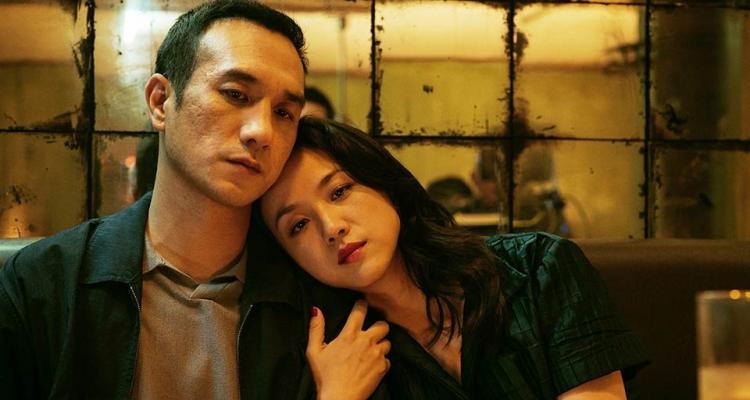It’s remarkable and perplexing that a landmark work such as director Bi Gan‘s latest film, “Long Day’s Journey into Night,” is not part of this year’s official competition at the Cannes Film Festival. The mezmerizing, mysterious film, an indisputably great one, is coming off the heels of the equally otherworldly 2014 film “Kaili Blues,” but this sophomore effort is a game-changer of the highest order.
Set in a rural China filled with darkly dreamy, isolated, and neon-lit streets, Bi Gan focuses on a man in search of a woman that has haunted him for years. Just like the very best of elliptical works of David Lynch and Weerasethakul, a second viewing is mandatory to fully absorb the plot that intertwines in asymmetrical fashion and dares us to follow along. The result is damn near hypnotic.
READ MORE: The 2018 Cannes Film Festival: The 20 Most Anticipated Movies
The director delves us deep into his complicated plotting, asking, no daring, us to follow the intricate plight of his main protagonist Luo Hongwu (Huang Jue). Hongwu is still obsessed and preoccupied by an affair he had with Wan Qiwen (Tang Wei), more than a decade ago. “Fragmented memories — are they real or not?” he exclaims in an early scene, the same could be said about the film itself which constantly questions what is real and what is fiction. It’s hinted that Hongwu murdered Qiwen and the hazy memories slowly but surely start to resurface. The first half of the film consists of Hongwu returning to his childhood home, searching for recollections of his lost love. The aforementioned affair results in Qiwen trying to flee her gangster boyfriend, Zuo Hongyan (Chen Yongzhong), but it all ends in tragedy. However, the audacious second half of the opaque drama is what leaves most viewers awestruck: at the 73 minute mark Hongwu enters a movie theater and puts on his 3D glasses, a cue for the audience to do the same The title of the film is slapped on-screen: “Long Day’s Journey Into Night,” in bright green neon lights, with a moody electric guitar-led score phasing in the background. Is this a dream? Who knows, but what comes next is a single 50-minute take with an atmosphere soaked in surrealism, as Hongwu explores for his lost love and tries to find some kind of conclusion.
Bi Gan creates unforgettably feverish phantasmagoricalism, as he toys with time through a narrative that deals with fractured remembrances and dreams. It’s a work of art that is as confusing as it is spellbinding. Credited to three cinematographers; David Chizallet (“Mustang“), Yao Hung, and Dong Jinsong, the gorgeous aesthetics are the driving force behind this triumph, alongside, of course, the director himself. The greatness of this ‘Long Day’s’ is not just the bravado single take, it’s also that the result is one of the most beautiful and virtuoso feats in recent cinematic history. Consisting of no digital touch-ups, over a dozen setting changes, loads of extras, unpredictable animals, air travel (that’s right), musical numbers, and even a game of ping-pong, suffice to say, if Bi Gan’s goal was to reinvent the language of film, he might have done achieved that goal, but I’m still dizzily reeling.
In an era where digital fakery can masquerade for the real thing, Bi Gan brings back the possibilities, no the magic, of cinema. Of course, Hongwu’s journey to find Qiwen is the goal here, but it’s the damn-near levitating feeling that follows the film, the unique world that takes shape in front of your very eyes and hypnotizes you. While ‘Long Day’s plot seems an afterthought, the experience is all that matters: the audience gathers all the clues, rummage through them to soak up the atmosphere and enter a world unlike any seen before. Make no mistake about it, “Long Day’s Journey Into Night” is a flat-out masterpiece and Cannes organizers might want to rethink their selection choices next time. [A]
Follow along with all our 2018 Cannes Film Festival coverage here.

